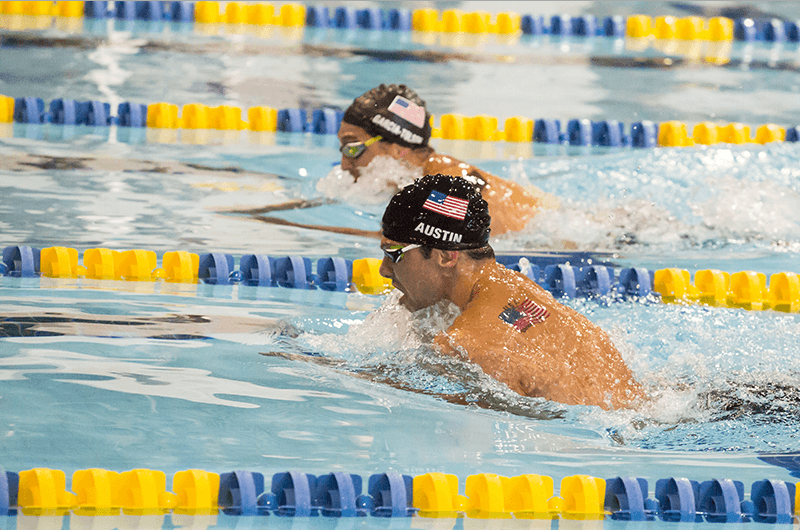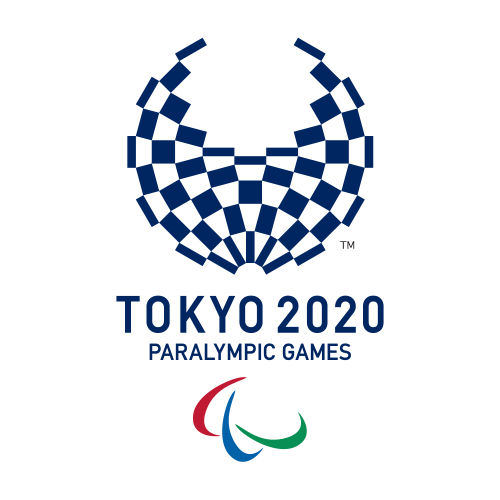IPC Announces Six Less Medal Events for Tokyo 2020 Paralympic Games

The International Paralympic Committee (IPC) Governing Board concluded two days of meetings in Bonn, Germany, on Saturday (27 January) having made a number of key decisions regarding the PyeongChang 2018, Tokyo 2020 and Paris 2024 Paralympic Games.
The Board discussed the suspension of the Russian Paralympic Committee and reached a decision regarding the PyeongChang 2018 Paralympic Winter Games. This will be announced at a press conference on Monday (29 January).
Following deferment in September, the Board approved the final athletics and swimming medal event programmes for the Tokyo 2020 Paralympic Games. Having stated that triathlon would have between six and 10 medal events in Tokyo, the Board decided the sport will have eight medal events. There will be four events for men and four for women with each event featuring 10 athletes. The IPC has requested that the International Triathlon Union (ITU) selects the eight events.
A full list of the events can be found at http://bit.ly/2niMU3h.

Photo Courtesy: Wiki Commons
The Tokyo 2020 Para athletics programme catering for 1,100 athletes will feature 168 medal events – nine less than Rio 2016 – and will be made up of 93 events for men and 74 for women. For the first time at a Paralympics, athletics will include a mixed gender, mixed class 4x100m relay. Made up of two men and two women, the relay team must include one athlete from the T11-13 vision impairment classes, one from either the T33-34 or T51-54 wheelchair racing classes, one from the T35-38 co-ordination impairment classes, and an athlete with a limb impairment from the T42-47 or T61-64 classes.
The athletics programme offers seven per cent more athlete slots for female athletes compared to Rio 2016.
In swimming there will be 146 medal events at Tokyo 2020 – six less than Rio 2016. These will be comprised of 76 for men, 67 for women and three mixed gender relays. Two of the mixed gender relays are new additions to the programme and are a 4x100m freestyle relays for athletes with a vision impairment and a 4x100m freestyle relay for athletes with an intellectual impairment. There will be a maximum of 620 athlete slots available for the sport and the programme includes two additional medal events for athletes with high support needs compared to Rio 2016.
Other highlights on the programme include the addition of two individual events in the S14 class for athletes with an intellectual impairment, with both the men’s and women’s 100m butterfly S14 included for the first time. The swimming event programme will have a balance stroke programme with no more than six events per class.
Andrew Parsons, IPC President, said: “Following the decisions on athletics, swimming and triathlon, the medals event programme for Tokyo 2020 is almost finalised, with just the eight triathlon medal events to be decided.
“For both athletics and swimming, we have created programmes that ensure a good cross section of events for athletes in all classes. By reducing the number of events in both sports from Rio 2016, we also aim to increase the depth of talent in each field and ensure greater long-term event viability. The addition of mixed gender relays will also enable more countries to participate.”
In relation to the Paris 2024 Paralympic Games sport programme, the IPC Governing Board approved which sports and disciplines that expressed an interest for inclusion in the Games in November should proceed to the next stage of the application process.
Going forward to Phase 2 will be CP Football, Golf, Powerchair Football and Sailing. All of these sports according to their applications appear to meet certain core requirements of the IPC Handbook including compliance with the World Anti-Doping Code, IPC Athlete Classification Code, quadrennial competition calendar and worldwide reach.
Karate and Para Dance Sport will move to the next stage as well to be potentially considered as additions outside of the official Paris 2024 Paralympic sport programme.
The Board decided that Surfing and the Taekwondo Poomsae discipline will not proceed to Phase 2 as both currently are not widely and regularly practiced in 32 countries, the minimum number required for individual sports and disciplines to be considered for Paralympic Games inclusion. Trap Shooting will not proceed to the next stage for the same reason; in addition the discipline has no quadrennial competition programme in place. Arm wrestling and wheelchair basketball 3-on-3 also have no quadrennial competition programmes and therefore will not be considered for the next phase.
Andrew Parsons said: “I would like to thank and congratulate all International Federations that put forward new sports and disciplines for consideration in the Paris 2024 Paralympic Programme. The fact that six of the 11 applicants will go forward to the next stage underlines the growing strength of sports within the Paralympic Movement.
“These six new sports, together with the 22 existing Paralympic sports, will now take part in the most comprehensive application process in Paralympic history as we aim to ensure that the Paris 2024 Paralympic Games features the best possible sports with the strongest global appeal.”
Sports will have until 9 July to complete application packs that feature a series of questions that aim to give the IPC detailed information regarding each sport’s governance, rules and regulations, associated costs, anti-doping programme compliance and activities, worldwide reach, quadrennial competition programme and procedures to ensure athlete welfare.
Following a thorough review of all applications, including full agreement from the IOC and Paris 2024, the IPC Governing Board will announce its final decision on the Paris 2024 Paralympic Games sport programme in January 2019.
During the course of the weekend the IPC Governing Board approved the provisional membership of the National Paralympic Committee of Paraguay, pending ratification at the 2019 IPC General Assembly. It was also informed by the IPC Classification Committee which International Federations and recognised International Federations have Classification Rules in compliance with the 2015 IPC Athlete Classification Code. This full list will be published by the IPC in February.
Finally, the IPC Governing Board gave the go ahead to full review of the IPC Governance structure and all relevant sections of the IPC Handbook, including the IPCconstitution, relevant bylaws, codes and policies. A working group will be established under the leadership of IPC Vice President Duane Kale to review the structures and key rules and regulations that have been in place since 2004.
The 78th IPC Governing Board meeting will take place in PyeongChang, South Korea, on 7 March, ahead of the PyeongChang 2018 Paralympic Winter Games.
Press release courtesy of IPC.



